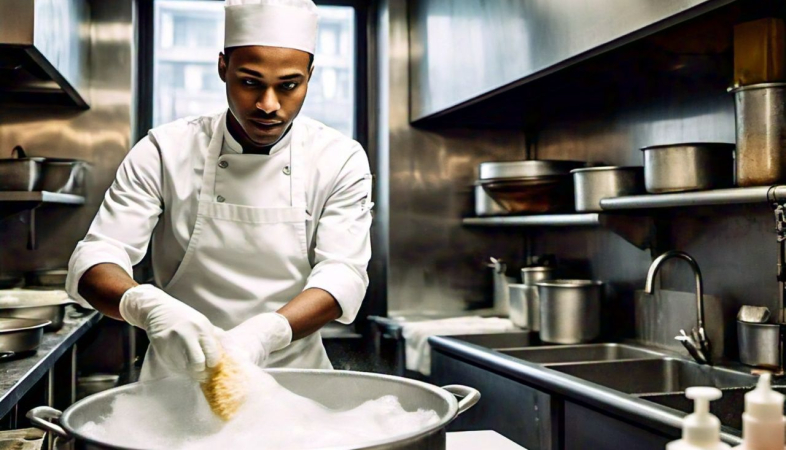Importance of Communication Skills for Kitchen Stewards
Kitchen stewards play a role in onboarding new staff members and training them on proper cleaning techniques, hygiene practices, and kitchen protocols.
Communication skills are the backbone of efficiency and
effectiveness in the fast-paced environment of a commercial kitchen. For
kitchen stewards, who play a critical role in maintaining cleanliness,
supporting food preparation, and ensuring smooth operations, strong
communication abilities are indispensable.
In a bustling kitchen, coordination is paramount. Kitchen stewards must communicate effectively with chefs, line cooks, and servers to synchronize tasks and maintain a steady workflow. Clear and concise communication helps in prioritizing responsibilities, coordinating food preparation timelines, and ensuring that each team member understands their role in delivering timely and well-executed dishes to guests.
Moreover, communication is essential for upholding stringent hygiene and safety protocols. Kitchen stewards are responsible for maintaining cleanliness throughout the kitchen, including sanitizing surfaces, equipment, and utensils. Effective communication ensures that cleaning schedules are adhered to, hygiene standards are consistently met, and potential hazards are promptly addressed. By conveying cleaning protocols clearly and consistently, kitchen stewards contribute to a safe and hygienic environment, minimizing the risk of cross-contamination and foodborne illnesses.
Handling guest requests and dietary preferences also requires effective communication skills. Kitchen stewards often serve as intermediaries between front-of-house staff and the kitchen team, ensuring that special instructions or dietary restrictions are communicated accurately. Clear communication helps in accommodating guest preferences, ensuring that meals are prepared according to specifications, and addressing any concerns or feedback promptly to enhance guest satisfaction.
In addition to operational tasks, communication skills are vital for equipment maintenance and inventory management in the kitchen. Kitchen stewards regularly communicate equipment maintenance needs, repair requests, and inventory requirements to kitchen managers or procurement teams. Timely communication about stock levels and supply needs helps prevent shortages, ensures efficient use of resources, and supports uninterrupted kitchen operations.
Furthermore, effective communication contributes to training and development initiatives within the kitchen. Kitchen stewards play a role in onboarding new staff members and training them on proper cleaning techniques, hygiene practices, and kitchen protocols. Clear instructions, demonstrations, and feedback foster a culture of continuous learning and improvement among team members, ensuring consistency in performance and adherence to operational standards.
In times of crisis or unexpected challenges, such as equipment malfunctions or sudden changes in menu items, strong communication skills are crucial for quick decision-making and problem-solving. Kitchen stewards who can communicate calmly and efficiently with their team can help implement contingency plans, adjust workflows as needed, and mitigate disruptions to service.
Strong communication skills enable kitchen stewards to uphold professionalism, efficiency, and customer service excellence in the dynamic and demanding environment of a commercial kitchen. By fostering clear and effective communication practices, kitchen stewards contribute to the overall success and reputation of the restaurant, ensuring a seamless dining experience for guests while maintaining operational excellence behind the scenes.
.png)




























